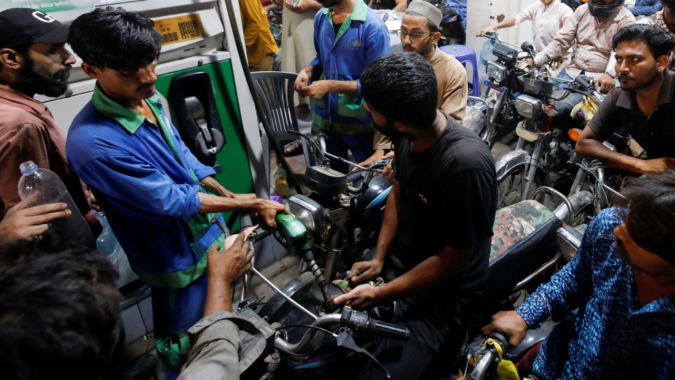Back-to-back hikes have seen the price of petrol in Pakistan rise sharply, from about 150 rupees a litre in May 2022 to the current 272 rupees.
High speed diesel will now cost 280 rupees a litre after an increase of 17.20 rupees, the finance ministry said. Kerosene and light diesel oil prices were increased as well.
Withdrawal of subsidies is among the conditions laid down by the International Monetary Fund (IMF) for the release of critical funds to bail out Pakistan’s struggling economy.
An IMF team was in Pakistan for talks earlier this month, but returned without finalising the deal. They have also stressed on the government increasing revenues, reforms in the power sector and a clear fiscal roadmap for release of funds.
The Pakistani rupee has fallen sharply against the dollar since an artificial cap on the local currency was removed last month to allow its value to be decided by a market-based exchange rate. The country’s forex reserves too have depleted to unprecedented levels, leaving enough to meet only three weeks of imports.
These, coupled with high inflation, has resulted in the average Pakistani facing some of the worst hardships in recent times- food price rise, supply of essential items drying out, power cuts and fuel shortage.
Pakistan laid a supplementary finance bill before parliament on Wednesday, proposing to raise the goods and services tax (GST) to 18% from 17% to help raise 170 billion rupees ($639.70 million) in extra revenue during the fiscal year ending in July.
The finance bill also proposed to raise taxes on luxury items to 25%, while hikes in taxes on first- and business-class air travel, cigarettes and sugary drinks were also proposed.
(With agency inputs)Watch Economic crisis: Pakistan hikes petrol price by Rs 22.20 a litre
